‘WalkON Suit’ co-developed by college, business, hospital, research center, etc. wins gold and bronze at Cybathlon 2020
Dep. of Robotics and Intelligent Machine Engineering Professor Choi Jung-soo leads ‘robotic movement general/control technology’ research
Defeats advanced robotics countries such as Switzerland and USA with unrivaled technology
Goal to commercialize wearable robots for the disabled... Possible to apply in various sectors such as general and industrial-use
[November 16, 2020]
<‘Cybathlon 2020’ match>
(Dep. of Robotics and Intelligent Machine Engineering Professor Choi Jung-soo (first on right) and player Kim Byung-wook)
The Korean ‘Ironman’ robot ‘WalkON Suit’ that applied the technologies of YU Dep. of Robotics and Intelligent Machine Engineering Professor Choi Jung-soo (34) topped the world at Cybathlon 2020.
Professor Choi participated in the first Cybathlon as part of KAIST Professor Kong Gyeong-cheol’s team held in Switzerland in 2016 and won third place. At this second tournament, Kim Byung-wook (47, male) and Lee Joo-hyeon (20, female) represented Korea, winning first and third place, and thereby demonstrating the world’s best research capacities.
<Professor Choi Jung-soo during an interview with the press at Cybathlon 2020 (first on right)>
Cybathlon combines the words ‘cyborg’ that means robotic man and the Latin word ‘athlon’ that means contest, and it is the first integrated robot-disabled person international Olympics in the world. Matches are held with people with disabilities completing missions while wearing bioengineering assistance devices like robots. Over 50 teams from 20 countries participated in six matches at the Cybathlon 2020. Team Korea that included Professor Choi participated in the wearable robot matches to compete with 12 players from eight countries including the US and Switzerland. Due to COVID-19 this year, the competitors installed stadiums in 33 regions around the world and competed through multiple-relay methods.
The wearable robot competition involved a disabled player with complete lower body paralysis outfitted in a wearable exoskeleton robot to complete missions such as getting up off a sofa, stacking cups, passing zig-zag obstacles courses, walking on rough terrain, climbing up and down stairs, walking on side-ways inclines, and passing hills and doors. The rankings were given based on the accuracy of completing missions, time, etc. Professor Choi’s team member Kim Byung-wook completed all missions in 3 minutes and 47 seconds and Lee Joo-hyeon finished in 5 minutes 51 seconds, demonstrating unrivaled technologies and thereby winning the gold and bronze medals, respectively. The silver medal went to the Swiss team who completed the mission in 4 minutes 40 seconds, and the US team came in fourth with a record of 6 minutes and 51 seconds.
<Cybathlon 2020 ‘Walking Downhill’>
<Cybathlon 2020 ‘Climbing Up Stairs’>
<Cybathlon 2020 View of Venue>
Professor Choi cooperated with the KAIST research team as well as the top research teams in different sectors of industry, academic and research such as Angel Robotics, Severance Rehabilitation Hospital, Rehabilitation Engineering Research Center to develop WalkON Suit 4. In particular, in addition to the robot structure, electronic circuits, and control algorithms, but also major parts such as the motor decelerator were proprietarily developed for the WalkON Suit 4. Excluding some parts, most of it was completed with domestic technologies.
Professor Choi led the movement generation section such as software and control technologies, etc. related to robot movement, which is a core technology of WalkON Suit 4. In order for a disabled person to actually utilize a robot, that person must be able to perform complex movements while riding the robot such as straight, curved and rugged terrain walking, climbing up and down hills and stairs, and passing doors. Professor Choi is currently developing various motion generation algorithms and precision control to configure such precise movements and conducting research to apply it in robots.
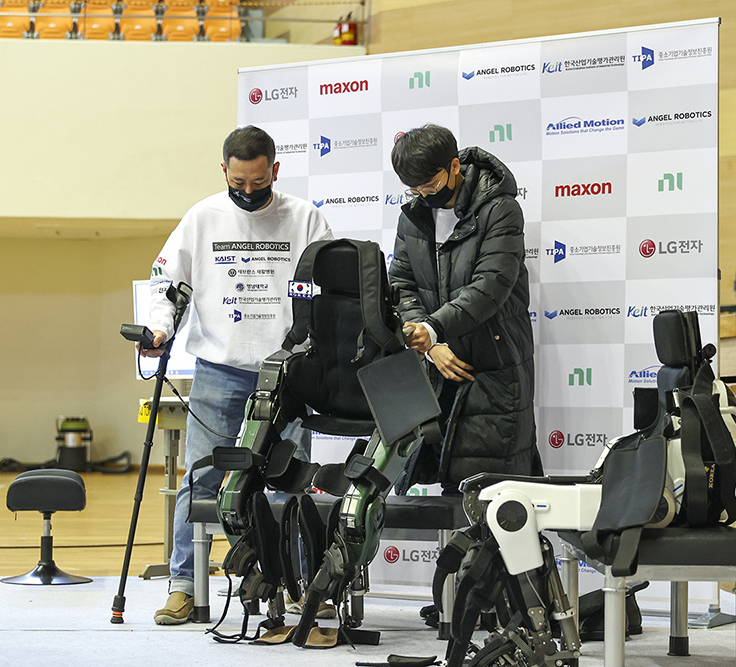 Professor Choi said, “The primary goal of my research is to help disabled persons who are paralyzed from the waist down to lead a normal life. With the awards from this contest, Korea’s wearable robot technologies were recognized to be the world's best. I want to contribute to improving the quality of life for those with paraplegia through continued collaborative research with relevant institutes such as industry, academic and research,” and added, “In the case of wearable robots, they are rapidly spreading worldwide not only for the disabled, but also for the military, police, firefighting, and industrial use. It is now a time that we must preemptively develop technologies to gain technologies in advance and to lead the world market, but also a time to revamp the systems involved with it.”
Professor Choi said, “The primary goal of my research is to help disabled persons who are paralyzed from the waist down to lead a normal life. With the awards from this contest, Korea’s wearable robot technologies were recognized to be the world's best. I want to contribute to improving the quality of life for those with paraplegia through continued collaborative research with relevant institutes such as industry, academic and research,” and added, “In the case of wearable robots, they are rapidly spreading worldwide not only for the disabled, but also for the military, police, firefighting, and industrial use. It is now a time that we must preemptively develop technologies to gain technologies in advance and to lead the world market, but also a time to revamp the systems involved with it.”
Professor Choi was appointed as a professor at the Department of Robotics and Intelligent Machine Engineering in March of 2019 and is a young scientist who is leading domestic robot research. He won the presidential award at the 2017 Korea Invention Patent Exhibition with the ‘multi-leg walking robot’ and also received the Rising Scientist Award in last year’s regular academic conference of the Institute of Control, Robotics and Systems.
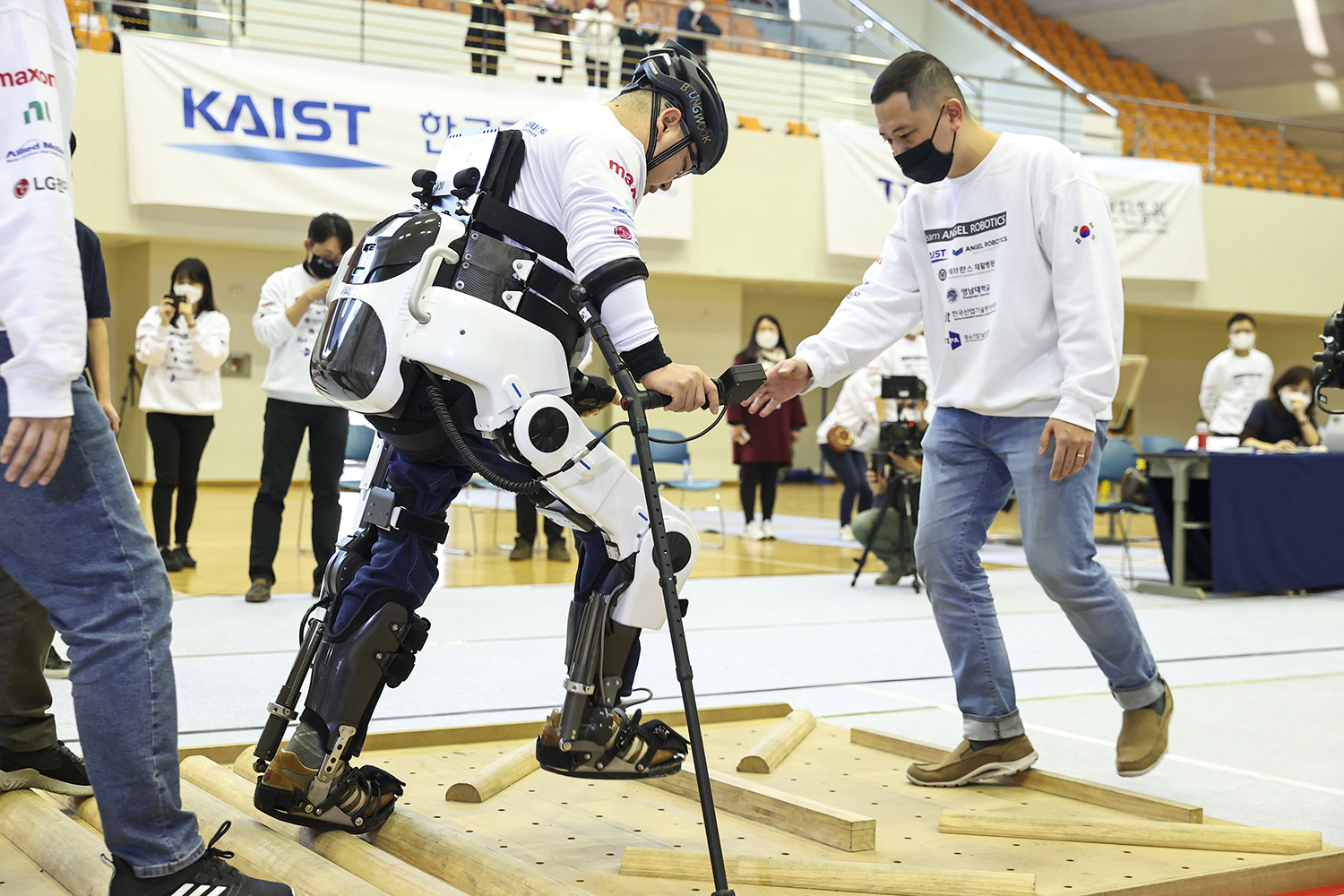
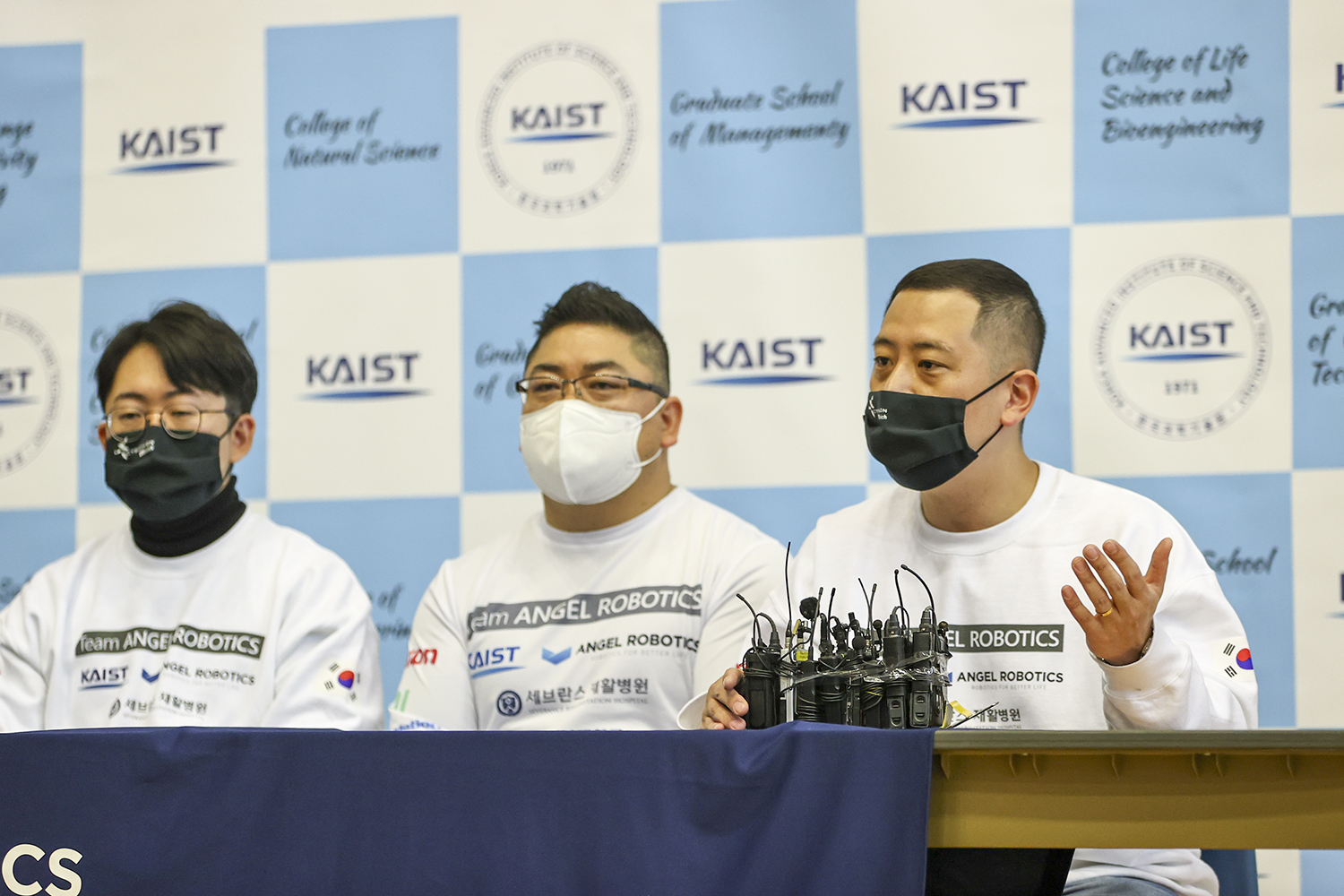
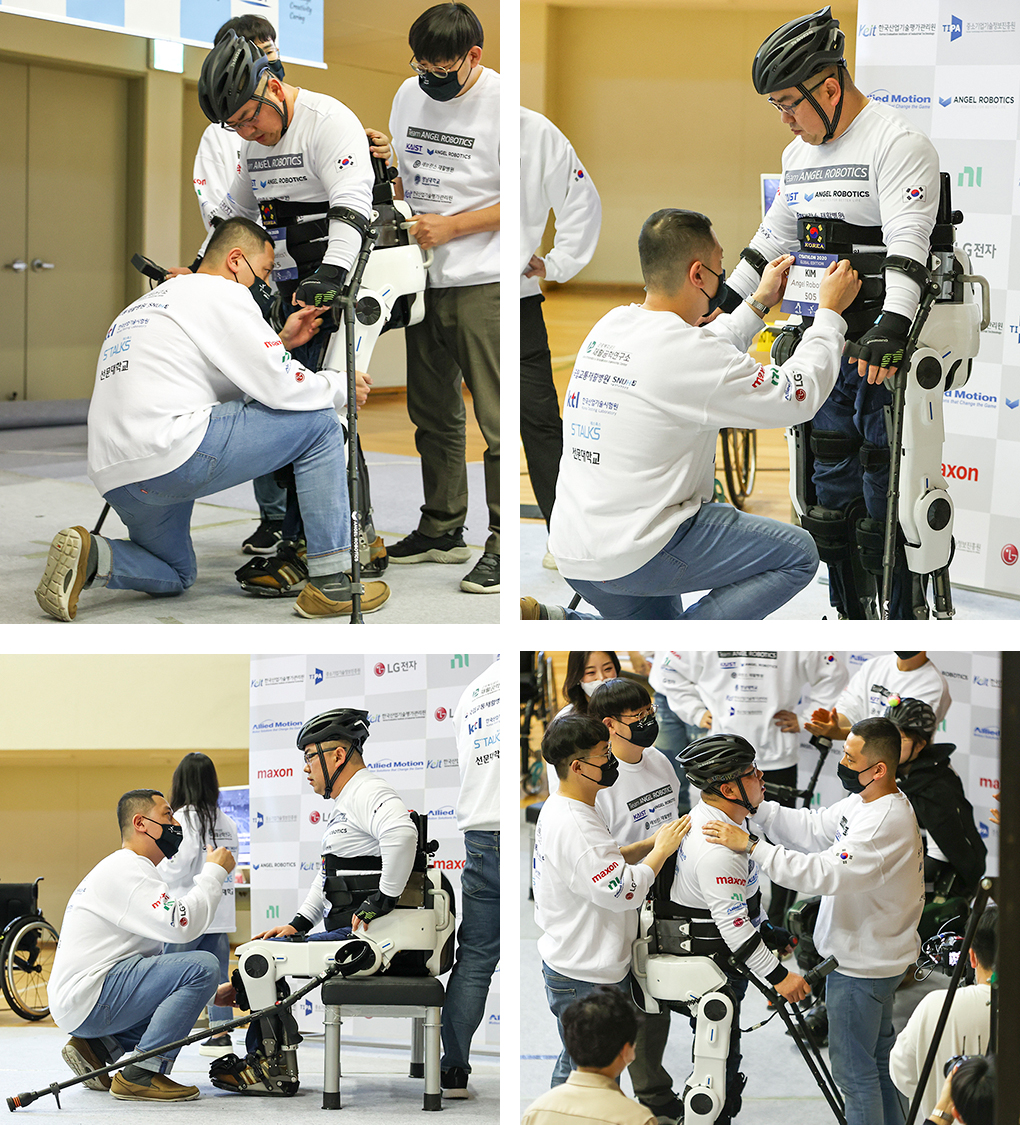
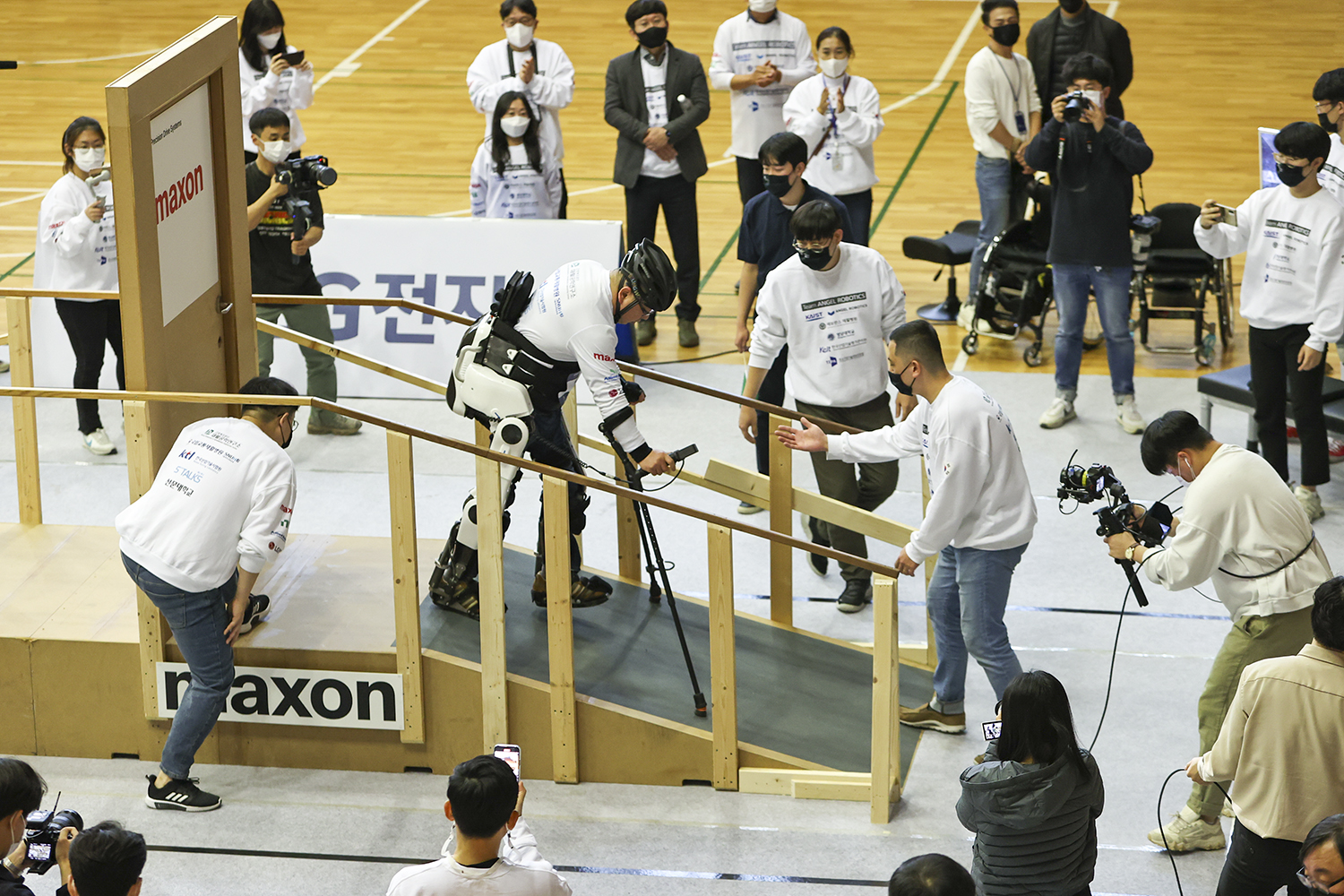
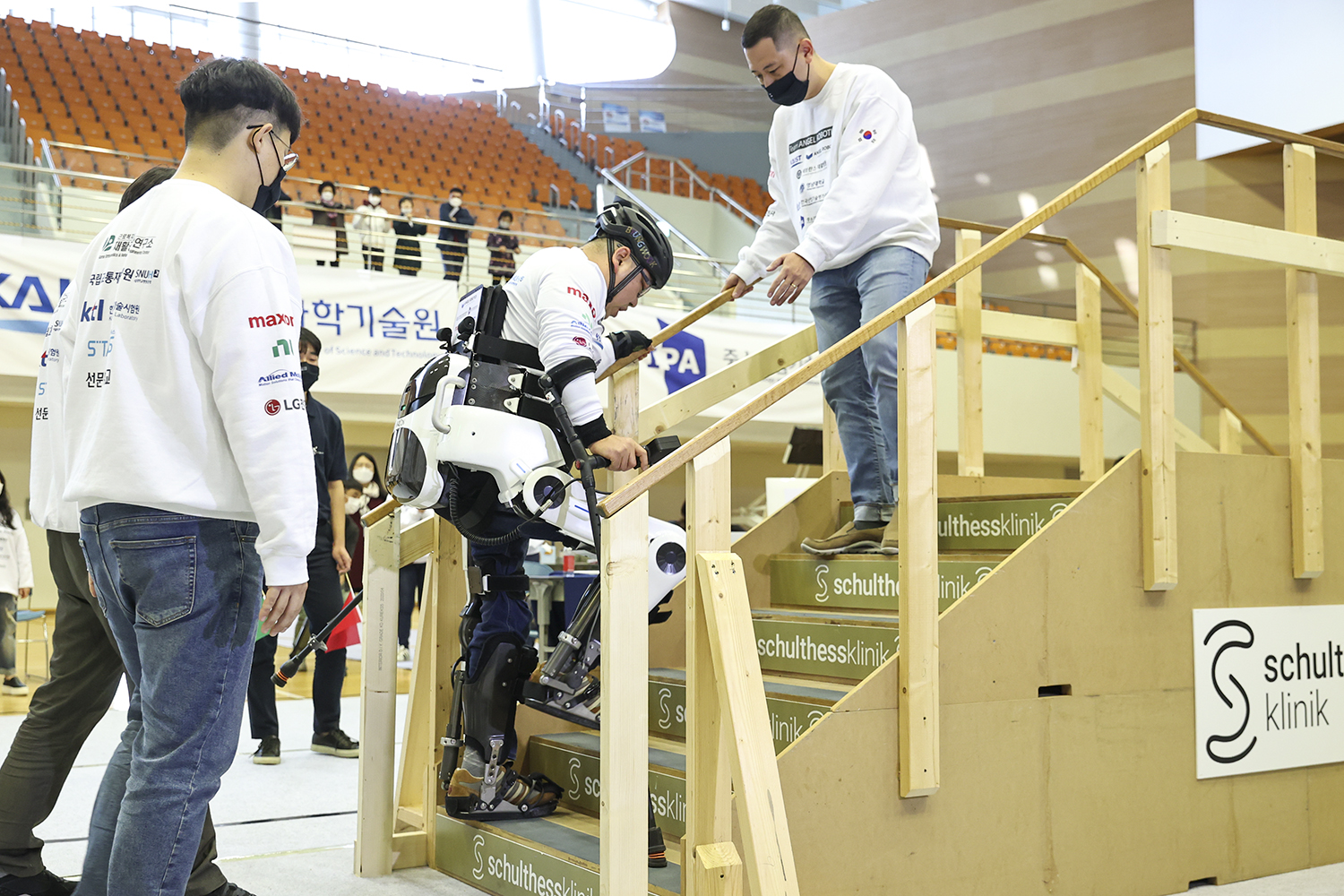
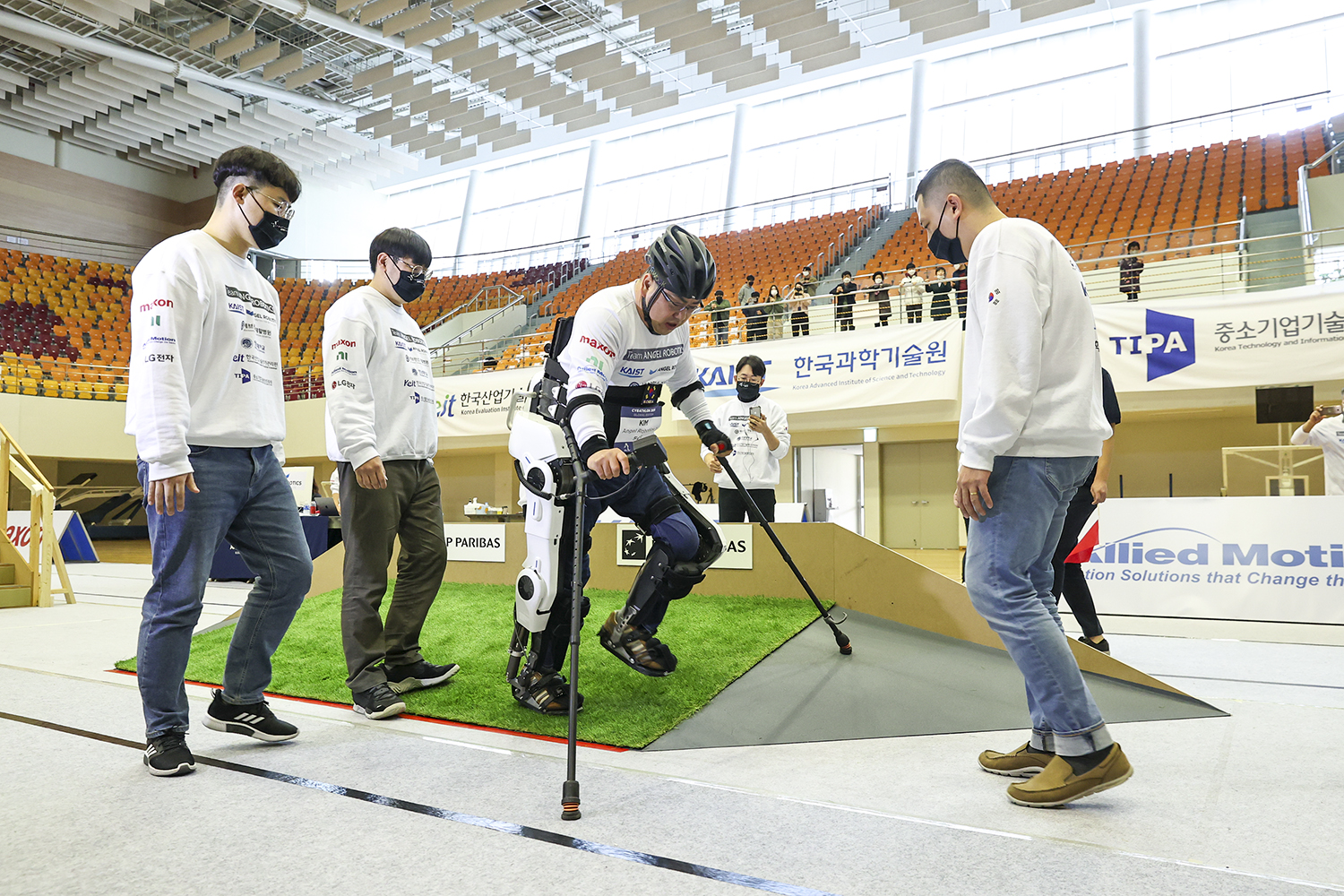
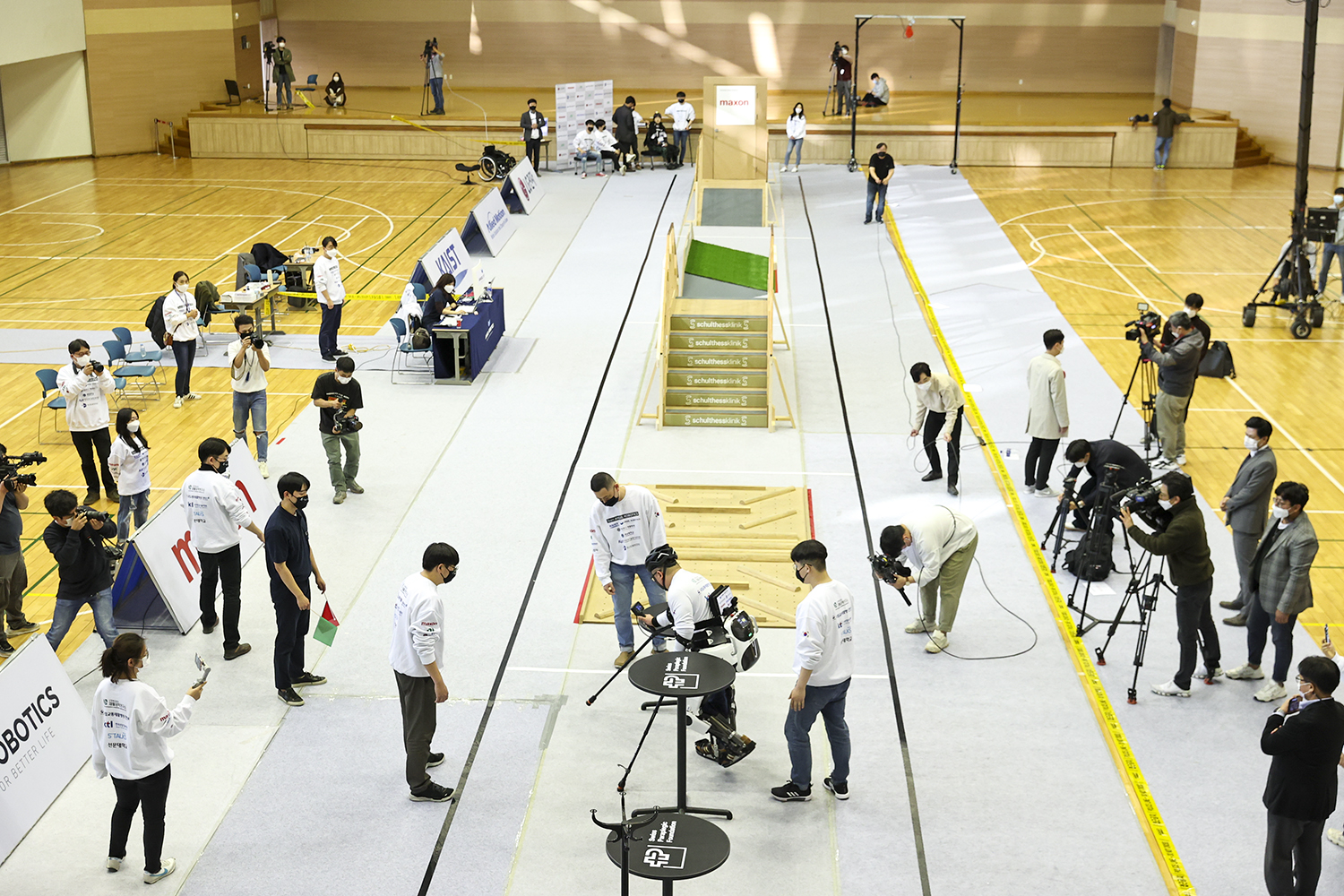
 Professor Choi said, “The primary goal of my research is to help disabled persons who are paralyzed from the waist down to lead a normal life. With the awards from this contest, Korea’s wearable robot technologies were recognized to be the world's best. I want to contribute to improving the quality of life for those with paraplegia through continued collaborative research with relevant institutes such as industry, academic and research,” and added, “In the case of wearable robots, they are rapidly spreading worldwide not only for the disabled, but also for the military, police, firefighting, and industrial use. It is now a time that we must preemptively develop technologies to gain technologies in advance and to lead the world market, but also a time to revamp the systems involved with it.”
Professor Choi said, “The primary goal of my research is to help disabled persons who are paralyzed from the waist down to lead a normal life. With the awards from this contest, Korea’s wearable robot technologies were recognized to be the world's best. I want to contribute to improving the quality of life for those with paraplegia through continued collaborative research with relevant institutes such as industry, academic and research,” and added, “In the case of wearable robots, they are rapidly spreading worldwide not only for the disabled, but also for the military, police, firefighting, and industrial use. It is now a time that we must preemptively develop technologies to gain technologies in advance and to lead the world market, but also a time to revamp the systems involved with it.”